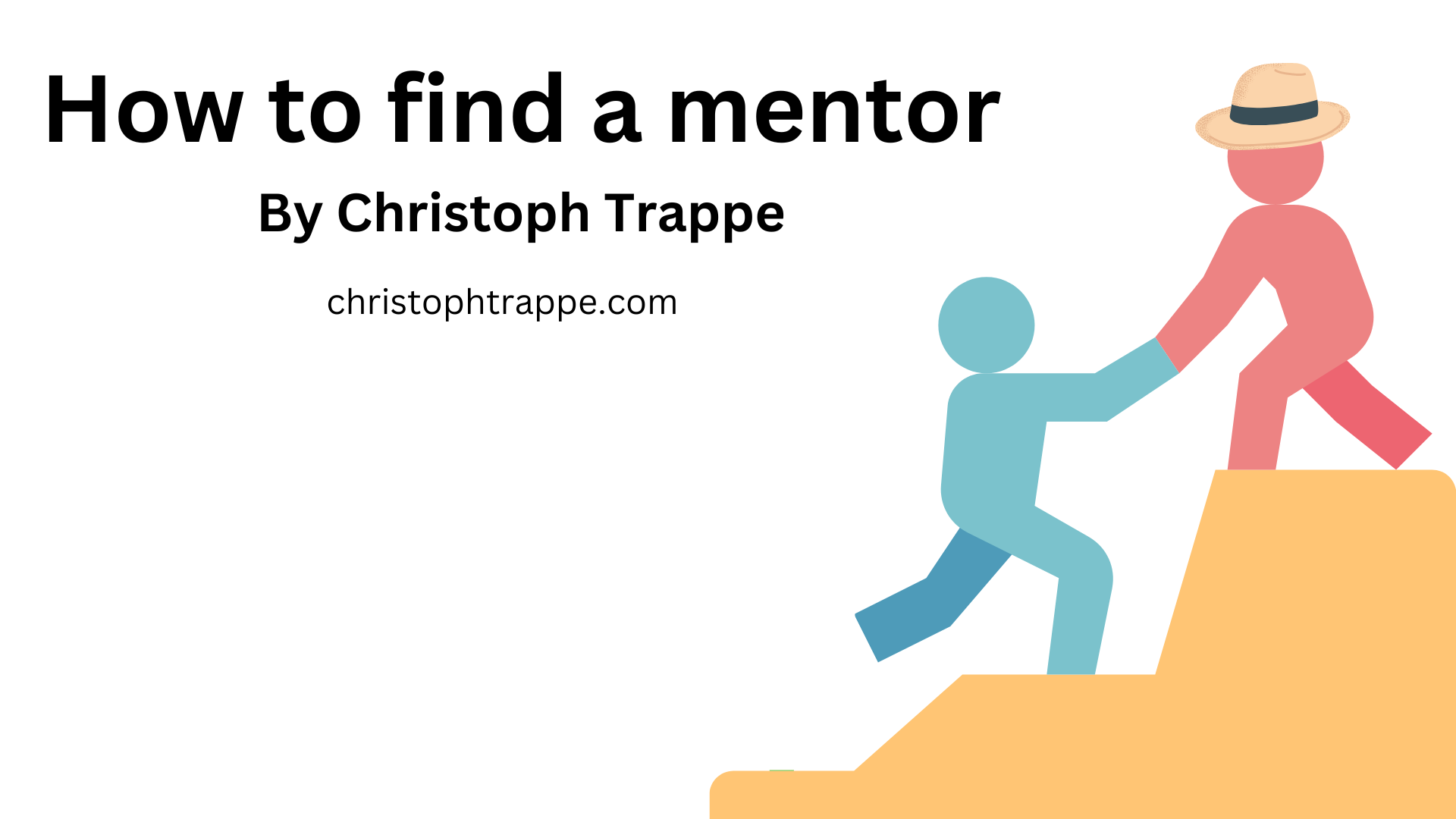Trappe Digital LLC may earn commissions from sponsored links and content. When you click and buy you also support us.
How to find a mentor can be an overwhelming task, and do you even need one? Who should I talk to, how do you make a mentorship a success, and how do we know we found the right person? So let’s discuss that topic here, including:
- What is a mentor?
- Potential goals for the relationship
- How to find a mentor
- What are the best ways to communicate?
- Why should people even become a trusted advisor?
In the ever-changing world of content and marketing, finding a good mentor might be more important than ever, especially early on in your career.
What is a mentor?
A mentor helps you grow as a professional through advice and guidance. This could be somebody who has had more experience in your field or has had different experiences than what you currently have.
In a nutshell, a relationship with a mentor should be highly educational and collaborative. It would be best if you learned something from it. A mentor is a trusted advisor. You go to them to get input, ideas, and perspectives.
Read next: How to improve written communication skills
Potential goals for your relationship with a mentor
For the mentee, the goal might be simple: to learn something new and to grow in their career. Some mentors might do it if they care about the person’s professional growth. Some people hire a mentor – in which case the mentor is now often called a coach.
Read next: How to improve written communication skills
How to find a mentor?
I’ve had mentors before that work at the same company where I work. They were higher-ups but not necessarily my direct supervisor. Sometimes they were my supervisor. While that relationship might not be the traditional relationship by definition, the supervisor can also be a trusted advisor. A person in a similar role or stage in their career as you can also be a mentor/trusted adviser.
If you are finishing your studies, you might consider a trusted professor a mentor. I drew on many of my professors’ experiences for input and further discussion when I attended the University of Iowa.
Read next: 562: How can leaders create a new playlist to be more successful – a chat with Susan Drumm
What are the best ways to communicate?
Many years ago, I met with my mentors in person. In more recent years, communication has been primarily on text and other text-based communication channels. Sometimes it’s good to hop on the phone and talk it through, but in my case, the in-person meeting with trusted advisors hasn’t happened in a while.
What way to communicate works best for you and them can depend on personalities and location. For example, if your trusted advisor is not in the same location you’re in, it might be nearly impossible to meet for coffee. But they might prefer Zoom calls over text messages, or a traditional phone call might be the best way to talk.
There are plenty of options available today – just talk that through and see what works best and what methods aren’t preferred. It might also be a mix. For example, over the years, I’ve been in relationships where I would never call unannounced. Instead, I would text first and ask if now is a good time to talk by phone. So that’s a simple example of how you might combine communication methods.
Read next: How brands can build online relationships
Why do people even become mentors?
People have different motivations for becoming a mentor. When it’s informal, it might just happen. People talk, which turns into a relationship that ultimately has the same effect as an official mentorship program.
Some companies might even set up a formal mentorship program. For example, I worked for a company where all new hires were assigned a mentor from another department that would help them get acclimated for at least the first six months. I found that program super helpful.
Business leaders might become mentors because their companies can be better when all employees improve. Others might do it because they enjoy the collaboration and learn something from the discussions and exchanges.
Partnering with a mentor – especially in a fast-moving field like marketing or content strategy – can accelerate learning, relationship building, and success. I would recommend it if you can find the right person.

